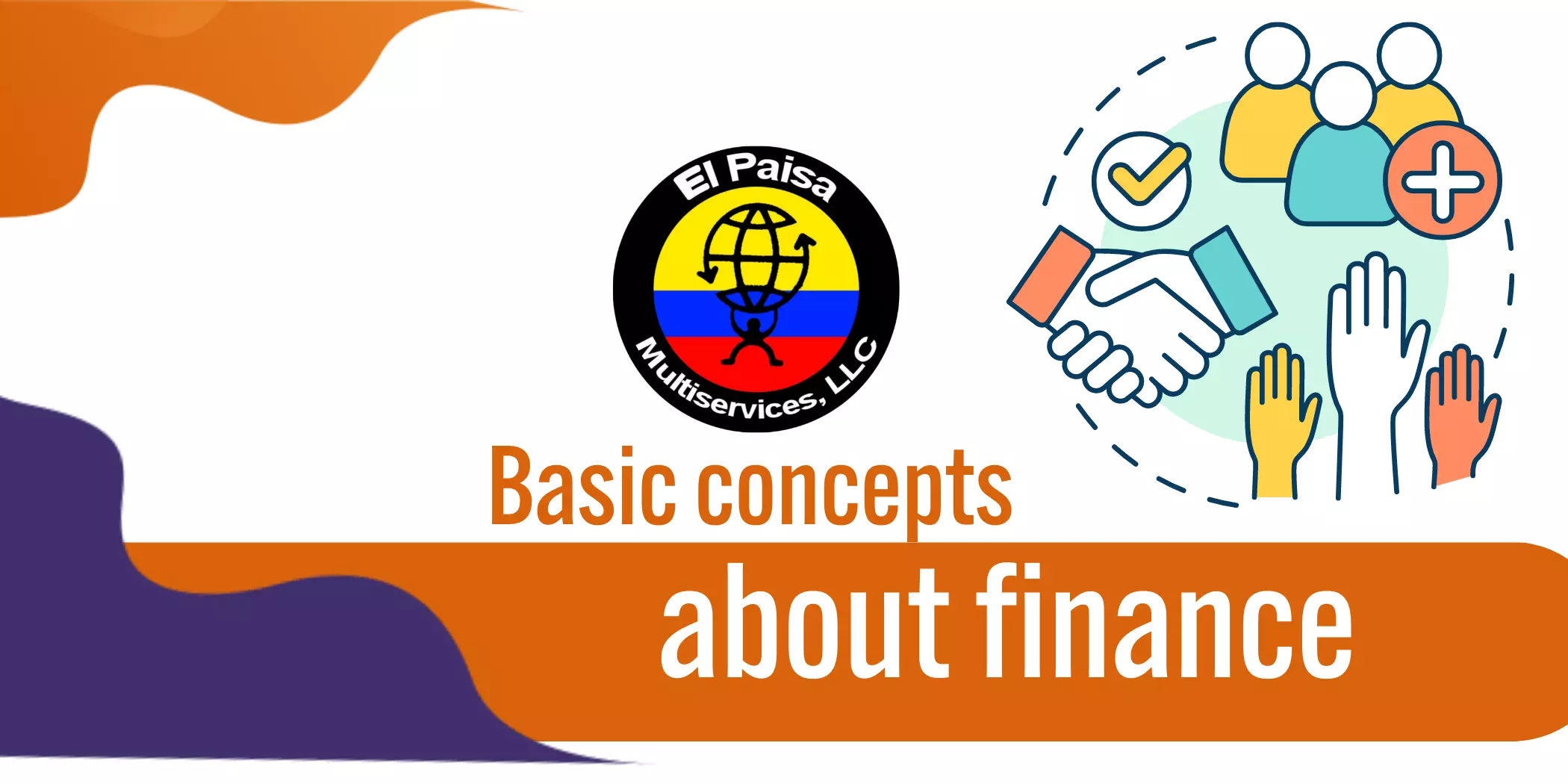Basic concepts about finance
Published 07/08/2022 | Last updated on July 08, 2022

Finance studies the process of money circulation. For instance, the way of obtaining and managing funds. It refers to the search for an increase in profits without investing more than is advisable.
If the investor is willing to face more significant uncertainty, his profits may be higher. Implementing adequate strategies to take advantage of the economic resources would generate their optimization, thus obtaining a more profitable economic yield. Each entity chooses its sources of financing according to the one that provides the most significant benefit.
Importance of finance
One of the essential elements for the management and formation of new businesses allows them to take advantage of growth opportunities, employ local labor, and support other companies and the local state. The federal government, through the remission of income taxes, is finance. Proper financial instruments, loans, and investments are the key to an organization's economic success and growth.
On the other hand, financial trends also define the state of the global economy so that central banks can plan monetary policies.
To conduct a business, companies need an endless variety of assets, which can be tangible, such as machinery, factories, and offices. And intangible such as brands, know-how, and patents, hence the need for finance, since through it will be able to obtain the money necessary for the operation and growth of the same.
When any element of the financing process breaks down, companies go bankrupt, and the economy moves into recession.
All facets of the world economy depend on an orderly process of finance. Capital markets provide the money to support businesses, and businesses offer the money to help people. Even the arts benefit from finance because they get their money from corporate sponsors and individual customers. Thus, a chain is established, starting with the capital markets which create the money, then businesses who distribute it, and finally individuals and institutions who spend it.
9 financial concepts you should know
1. Assets
Assets are goods you own and allow you to make a profit regularly. An asset generates income, such as leased property, shares in a company, or others. As Robert Kiyosaki says, "usually, the more money you make, the more you spend. That's why more money won't make you rich. It's assets that will make you rich."
2. Liabilities
As opposed to assets, liabilities are everything we have that is an expense but does not bring benefits in terms of economic gain. For example, a car is a liability because it costs money to acquire, and it also involves many expenses for maintenance, fuel, insurance, etc.
3. Mortgage loan
This is a loan generally granted by a bank to finance a house payment. It is the way to access the property without having to advance a lot of money in cash. This supposes some monthly expenses, which include the amortization of the debt and the interest paid to the entity for its service. It is convenient to analyze depending on the conditions of the credit and the objectives that one has if it is convenient to contract it or not.
4. Passive income
This is a person's money flow due to an investment, a patent, or a specific business. We speak of passive income when one does not have to perform direct work to get financial results, but through an initial operation, benefits are achieved continuously over time. For example, when one acquires a property, it makes an initial investment but at a given time begins to collect passive income without doing any work. This also happens if you sell eBooks on Amazon or live off the royalties of a song you have produced.
5. Scalability
A business or project is scalable if it manages to increase profit above a ceiling that limits growth. In a job, you can be promoted, but only up to a certain point, and if you charge for services, the maximum profit you can get is conditioned by sales. However, if a person, for example, invests in property, he/she achieves passive income and can make his/her personal or family economy scalable, i.e., grow beyond what the salary allows.
6. Cash flow
This is the amount of money that the property owner receives each month for renting it after subtracting the commissions and the property dividend. Simply put, it is the money you have left over each month when you lease a property once you have covered all the expenses it generates. It is a factor that is important to consider before deciding to invest in real estate.
7. Good Debt/Bad Debt
Debts are not bad in themselves, even if they seem to be a problem. Debt is wrong if it only generates expenses and difficulties but does not bring any financial benefit. Good debt provides an economic boost, i.e., if it can pay for itself over time and also allows you to increase your income.
8. Capital gain
In the context of real estate investments, goodwill is the increased value of a property measured from the time it is purchased until an appraisal of its value or the sale of the asset. For example, a property may increase in value over time if the area is growing and depending on how the country's economy evolves.
9. Leverage
This is the ratio of credit to equity. The higher the credit, the higher the leverage. The concept is based on the physical idea of leverage: with little effort, a lot of weight can be lifted if done correctly. Financial leverage means increasing economic possibilities thanks to good debt.
10. Risk versus reward
This economic concept helps to make financial decisions. It involves assessing the risk involved in a given financial transaction to the reward obtained. It is similar to a more everyday concept, value for money. A transaction with low risk and high reward is optimal, and if the risk increases, at least the reward should increase in proportion to make it worthwhile.
At El Paisa Multiservices we want to help you with your finances in Hartford, CT. You can contact us if you have questions about our services.
By Ingenuity & Solutions

